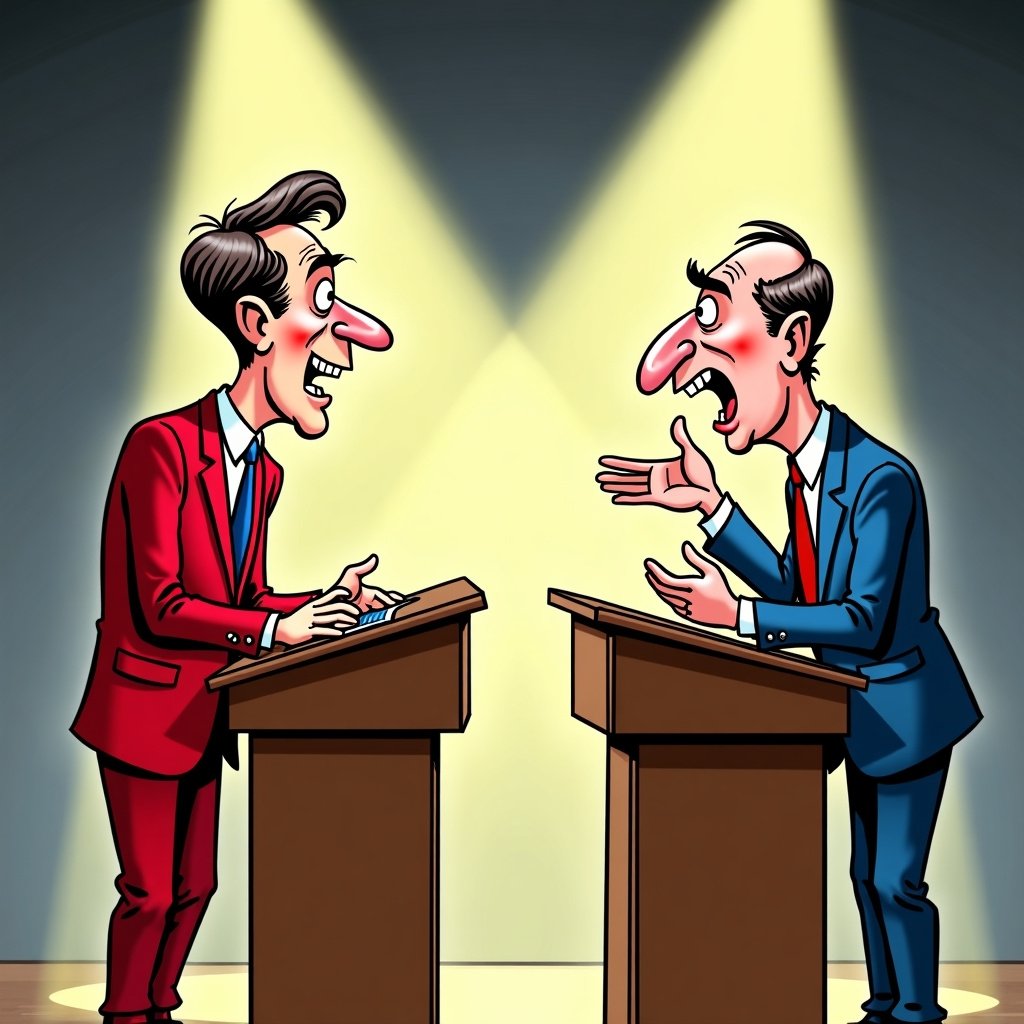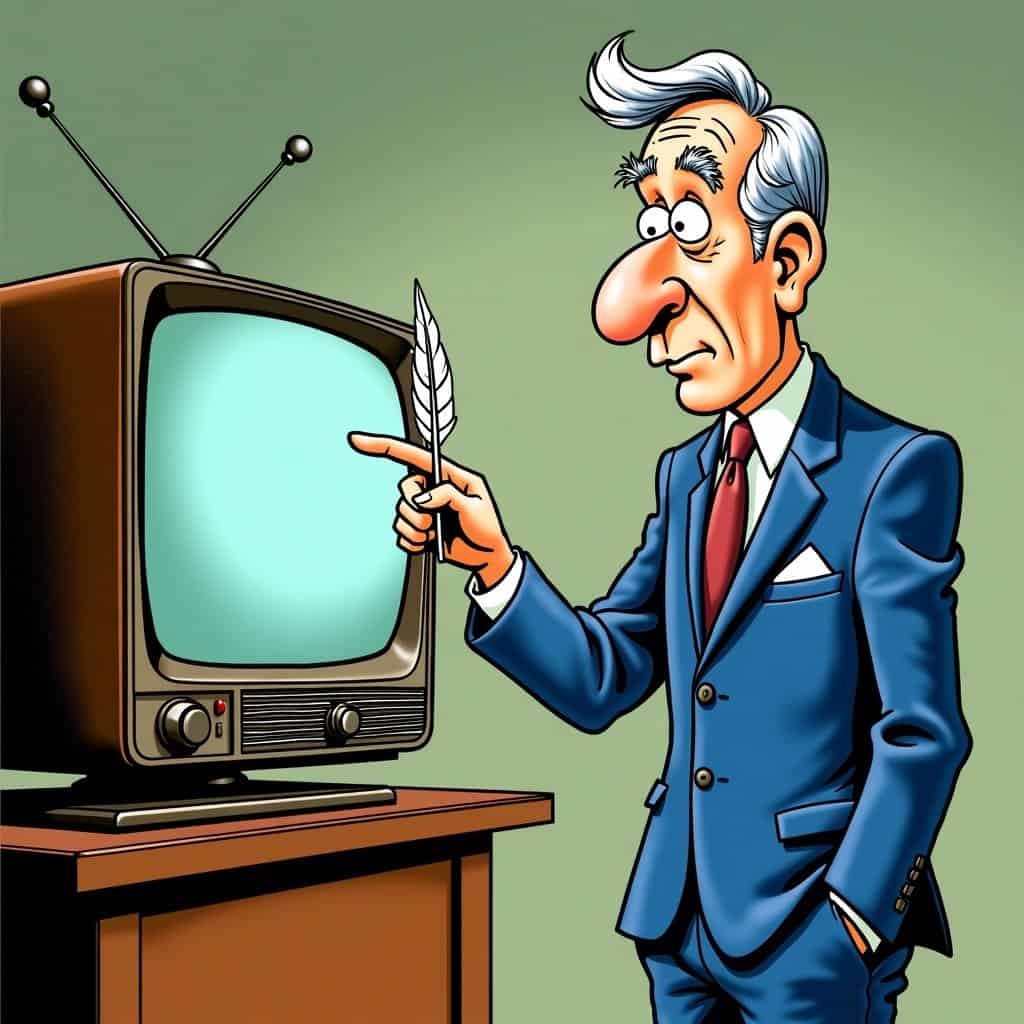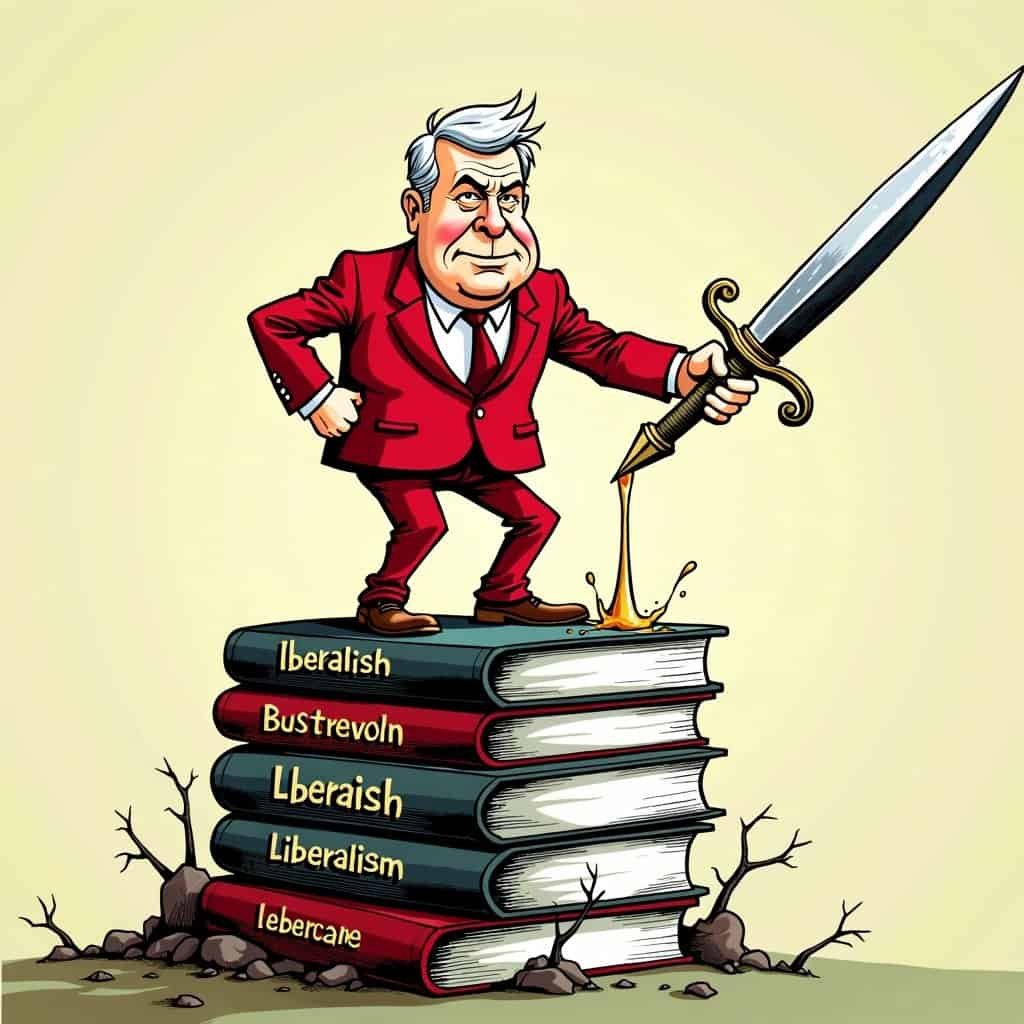Ah, the golden age of intellectual debate! Picture this: William F. Buckley Jr. and John Kenneth Galbraith sparring in what could only be described as the political equivalent of Ali versus Foreman. These two heavyweights showed us how debate was a clever dance of wits and words, not an all-out brawl of insults and indignation.
Buckley, our conservative champion, had a way of delivering zingers with a polite smile. A man who could disarm you with words that might send you scrambling for a dictionary. Opposite him stood Galbraith, the liberal lion who pushed for wealth redistribution with the enthusiasm of a Woodstock attendee. But, unlike today’s liberal chatter, Galbraith faced Buckley with sharp rhetoric rather than a snarky tweet.
One topic that often set them at odds was the economic divide between their ideologies. Conservatives, like Buckley, argued for lower taxes to boost investment and economic growth, believing in the ‘rising tide lifts all boats’ idea. It’s like saying, “Hey, if Bill Gates makes a few more billion, maybe he’ll toss a few bucks your way, eh?” And wouldn’t you know it, Buckley thought keeping the government out of your wallet was the ultimate act of patriotism.
Contrasting Economic Philosophies
| Conservative View (Buckley) | Liberal View (Galbraith) |
|---|---|
| Lower taxes to spur investment | Big government programs to reduce inequality |
| ‘Rising tide lifts all boats’ philosophy | Teaching to fish in government-funded ponds |
| Minimal government intervention | Increased taxpayer-funded initiatives |
Galbraith countered with his belief in big government programs aimed at reducing income inequality. To him, it wasn’t about giving fish to the poor but rather teaching them to fish in government-funded ponds. But of course, as Buckley would point out with a wry smile, creating such ponds required digging deeper into the pockets of the taxpayers.
Environmental issues were another hot topic. Conservatives leaned towards developing domestic energy, favoring market-based solutions over heavy-handed rules. Why? Because drilling in your backyard just simply feels American, doesn’t it? On the other hand, liberals, with their noble yet sometimes impractical pursuits, often favored government action for climate change. Buckley might chuckle and say, “Sure, let’s power the economy on unicorn farts and rainbow windmills while China burns coal like it’s going out of style.”
The Social Justice Tango
And oh, the matter of social justice and equality. Galbraith may argue that we needed more intervention, more affirmative action to correct historical injustices. But Buckley would quip, “Why should my success be penalized to fund endless social programs that only perpetuate dependency?” Conservatives argue for equality of opportunity where the best will naturally rise, while progressives seek equality of outcome, often at the expense of personal liberty.
The Healthcare Debate: Market vs. Universal
In healthcare, Buckley championed the idea that competition bred excellence. The market, he’d say, knows best who to treat and how much to charge. Galbraith, not one to shy away from grand ideals, advocated for universal healthcare because, in his mind, who should be profit-driven when someone’s life is on the line? Well, try telling that to someone who’s just waited four months for an appendectomy.
Core Philosophies: A Summary
Conservative Philosophy (Buckley)
- Limited government intervention
- Personal responsibility
- Free market solutions
Liberal Philosophy (Galbraith)
- Government intervention for social good
- Social justice and equality
- Collective responsibility
These debates were more than mere intellectual scuffles; they illustrated the core of conservative versus liberal thought. Buckley’s conservatism stood on the pillars of limited government, personal responsibility, and free markets. Galbraith’s liberalism pushed for government intervention and social justice.
So, when next you hear folks bicker on social media, standing firm behind their keyboard fortresses, remember the days when Buckley and Galbraith showed how grown-up debate is done. Two giants who could rip apart each other’s arguments with charm and wit and still part as gentlemen. They dined together, laughed together, and most importantly, taught us that debate is not about winning but understanding. Isn’t it time we had a bit more of that today?
Table of Contents
- Contrasting Economic Philosophies
- The Social Justice Tango
- The Healthcare Debate: Market vs. Universal
- Core Philosophies: A Summary






